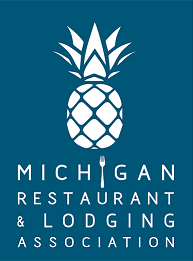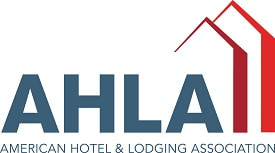Ask the Experts: Obtaining Liquor Licenses in 2022
|

Q: What are the options for restaurants and hotels to obtain liquor licenses in 2022?
A: The Federal Census has been certified such that many municipalities have new licenses available to grant to new businesses, or to businesses which want to add a liquor license to their business model.
There are many ways for a business to acquire a liquor license. The most common is to purchase a business with a license attached to it. In this case, the ownership of the liquor license is transferred with the business. If the business does not have a liquor license, a license can be purchased from a previous user whose license is in escrow with the Michigan Liquor Control Commission (MLCC). This is a transfer of location. Liquor licenses in escrow are transferable within the county in which it previously operated. For years, these purchases have been necessary in many areas because there were no new licenses available.
The State of Michigan issues liquor licenses, in part, based upon a “quota system.” This means that for every 1,500 in population, the municipality is authorized to issue one on-premises license. This is a new license, not one purchased from a prior user.
An on-premises license allows the licensee to sell and serve beer, wine, and spirits for consumption on the premises. These licenses can be classified in different ways, such as a Class C license, which is used generally for restaurants and bars, or B Hotel licenses which allow hotels to sell and serve beer, wine, and spirits. These licenses can also be reclassified as Tavern or A Hotel license which means that only beer and wine can be sold, no spirits.
The quota of licenses available to municipalities is adjusted every 10 years, based upon the results of the Federal Census. The last Federal Census was conducted in 2020. However, the results of the 2020 Census were not certified to the MLCC until recently. The 2020 Census showed population growth in many municipalities to the extent that additional on-premises licenses are now available to them.
Any business which requires or desires a liquor license to operate should first check to see if the municipality has a quota license available. Municipalities differ in their approaches to granting quota licenses. Many have lengthy processes and ordinances in place which set forth criteria for the applicant to meet. Some municipalities like to “hold” their available licenses for large development, rather than granting a quota license to a small business. This is a way for municipalities to attract large development. On the other hand, some municipalities are apt to grant licenses to small businesses because large operations can better afford to purchase a license.
A: The Federal Census has been certified such that many municipalities have new licenses available to grant to new businesses, or to businesses which want to add a liquor license to their business model.
There are many ways for a business to acquire a liquor license. The most common is to purchase a business with a license attached to it. In this case, the ownership of the liquor license is transferred with the business. If the business does not have a liquor license, a license can be purchased from a previous user whose license is in escrow with the Michigan Liquor Control Commission (MLCC). This is a transfer of location. Liquor licenses in escrow are transferable within the county in which it previously operated. For years, these purchases have been necessary in many areas because there were no new licenses available.
The State of Michigan issues liquor licenses, in part, based upon a “quota system.” This means that for every 1,500 in population, the municipality is authorized to issue one on-premises license. This is a new license, not one purchased from a prior user.
An on-premises license allows the licensee to sell and serve beer, wine, and spirits for consumption on the premises. These licenses can be classified in different ways, such as a Class C license, which is used generally for restaurants and bars, or B Hotel licenses which allow hotels to sell and serve beer, wine, and spirits. These licenses can also be reclassified as Tavern or A Hotel license which means that only beer and wine can be sold, no spirits.
The quota of licenses available to municipalities is adjusted every 10 years, based upon the results of the Federal Census. The last Federal Census was conducted in 2020. However, the results of the 2020 Census were not certified to the MLCC until recently. The 2020 Census showed population growth in many municipalities to the extent that additional on-premises licenses are now available to them.
Any business which requires or desires a liquor license to operate should first check to see if the municipality has a quota license available. Municipalities differ in their approaches to granting quota licenses. Many have lengthy processes and ordinances in place which set forth criteria for the applicant to meet. Some municipalities like to “hold” their available licenses for large development, rather than granting a quota license to a small business. This is a way for municipalities to attract large development. On the other hand, some municipalities are apt to grant licenses to small businesses because large operations can better afford to purchase a license.

What are the advantages and disadvantages to acquiring a quota license?
The advantage is that the cost of the license itself is nominal. There are costs to the municipality and to the MLCC for application, investigation, and licensing fees. But these costs are far less than purchasing a license.
The disadvantages are that the process is longer than acquiring and transferring a license to the business because the MLCC requires approval from the municipality before the MLCC will begin its process. Further, there are no guarantees that an applicant will be approved by the municipality. And if after the process, approval is not given, the applicant is left with purchasing a license.
Finally, there are restrictions if awarded a quota license. A quota license cannot be sold or transferred for a period of three years after issuance without a showing of undue hardship. This means that if the business closes within the first three years, special permission must be granted by the MLCC to sell the license. This restriction in the Liquor Code makes sense. It would be unfair to award a quota license to a new business, only to allow that business to immediately sell the license for a large profit.
To find out if a municipality has new licenses available, check the MLCC website at www.michigan.gov and click on Local Government Quota Lookup.
In making the determination about applying for a quota license, it is beneficial to know the market values of a county license which could be purchased for a project. While COVID-19 has had its detrimental effect on many aspects of this industry, it is surprising that the market value of licenses has stayed somewhat consistent. There is no science or regulation which determines the value of, for example, a Class C license, in a particular county. Basically, the rules of supply and demand apply. The purchase price will depend on how many are available.
As counsel for liquor licensees, Adkison, Need, Allen, & Rentrop PLLC can provide market value ranges upon request.
The advantage is that the cost of the license itself is nominal. There are costs to the municipality and to the MLCC for application, investigation, and licensing fees. But these costs are far less than purchasing a license.
The disadvantages are that the process is longer than acquiring and transferring a license to the business because the MLCC requires approval from the municipality before the MLCC will begin its process. Further, there are no guarantees that an applicant will be approved by the municipality. And if after the process, approval is not given, the applicant is left with purchasing a license.
Finally, there are restrictions if awarded a quota license. A quota license cannot be sold or transferred for a period of three years after issuance without a showing of undue hardship. This means that if the business closes within the first three years, special permission must be granted by the MLCC to sell the license. This restriction in the Liquor Code makes sense. It would be unfair to award a quota license to a new business, only to allow that business to immediately sell the license for a large profit.
To find out if a municipality has new licenses available, check the MLCC website at www.michigan.gov and click on Local Government Quota Lookup.
In making the determination about applying for a quota license, it is beneficial to know the market values of a county license which could be purchased for a project. While COVID-19 has had its detrimental effect on many aspects of this industry, it is surprising that the market value of licenses has stayed somewhat consistent. There is no science or regulation which determines the value of, for example, a Class C license, in a particular county. Basically, the rules of supply and demand apply. The purchase price will depend on how many are available.
As counsel for liquor licensees, Adkison, Need, Allen, & Rentrop PLLC can provide market value ranges upon request.
Click to set custom HTML




